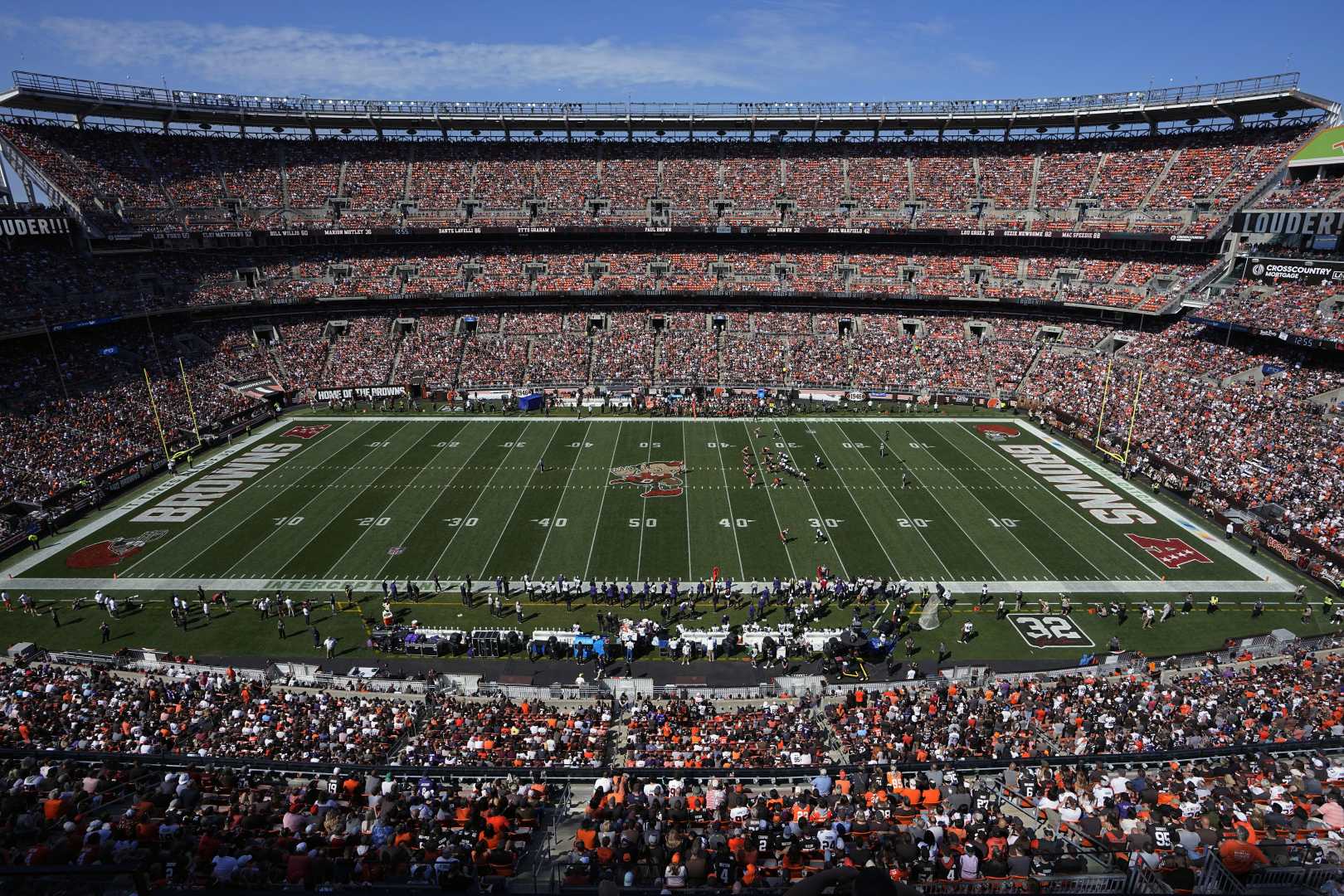News
Cleveland Browns Consider Move to Brook Park Amid Stadium Disagreements

The Cleveland Browns football team has been at the center of a contentious negotiation between the team’s owners and the city over the location of a new stadium. Cleveland Mayor Justin Bibb announced on Thursday that after more than a year of discussions, an agreement to renovate the Browns’ current downtown stadium could not be reached. Instead, the Browns are contemplating relocating to a new stadium in Brook Park.
During a news conference at City Hall, Mayor Bibb expressed his concerns about the Browns’ potential move away from Cleveland. He described the decision as “frustrating and profoundly disheartening” and warned that such a move would weaken the economic vitality of downtown Cleveland while fostering new competition from a suburban entertainment district.
“Yes, the Browns and our visitors matter,” Mayor Bibb stated. “But the well-being of the people who live here will always come first. This was our most important priority, and it is the one we must never compromise.”
In a statement, team owners Jimmy and Dee Haslam highlighted the benefits they believe a new, domed stadium in Brook Park would bring, though they stopped short of confirming the relocation outright. “With the funding mechanisms we continue to work on, this stadium will not use existing taxpayer-funded streams that would divert resources from other more pressing needs,” their statement read, proposing a $2.4 billion project partially funded privately.
Cuyahoga County Executive Chris Ronayne and Council President Pernel Jones Jr. have publicly opposed county funding for a Brook Park stadium, citing economic concerns. Ronayne reiterated his stance that the stadium should remain downtown. “Browns stadium should remain downtown,” he said in an emailed statement.
During negotiations, Bibb offered $367 million in city taxpayer money for renovations to the existing lakefront stadium, along with an additional $93 million for future maintenance. However, the Haslams preferred a new domed structure, leading Bibb to propose a site on Burke Lakefront Airport’s land, an option ultimately dismissed by the team.
While discussions continue about the team’s future location, Mayor Bibb indicated willingness to return to negotiations under “responsible” terms for Cleveland residents and taxpayers should circumstances around the Brook Park plan change.
Although specific financing strategies remain unconfirmed, Brook Park Mayor Edward Orcutt expressed excitement about the prospect of a new stadium in his city but acknowledged the need for a detailed fiscal plan.
The relocation efforts will also face legal challenges, including the enforcement of Ohio’s “Art Modell law,” which requires teams to give local governments six months’ notice before intending to move and provides an opportunity for the city or residents to purchase the team first. City Council has tasked Mayor Bibb with pursuing enforcement of this law.
As the situation unfolds, Mayor Bibb urged state leaders, including Ohio Governor Mike DeWine, to refrain from supporting the Brook Park stadium financially if it comes at the expense of downtown Cleveland, suggesting any state investment in Brook Park should be matched for a potential downtown project.
The Browns’ decision has garnered considerable attention from various stakeholders, with local and state lawmakers yet to be formally approached about supporting the Browns’ move to Brook Park. Communications and planning are ongoing as Cleveland weighs its options for the team and future development.












